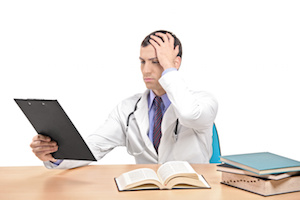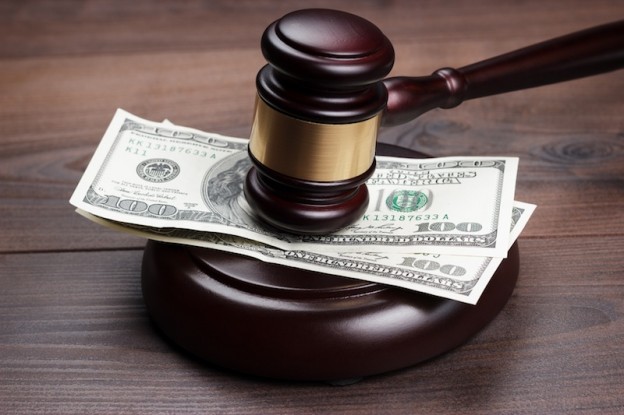A federal judge in the Northern District of Alabama has ruled that a difference of opinion among medical experts is not sufficient to prove that a healthcare provider filed false claims for Medicare payments. If that decision is adopted by other courts or affirmed on appeal, the government’s ability to bring false claim lawsuits that rely entirely on expert testimony will be severely undermined.
Whistleblower Claims Against AseraCare
The decision came in a whistleblower lawsuit filed against AseraCare, a hospice provider that has facilities in 19 states. AseraCare has received millions of dollars in Medicare payments that the Department of Justice (DOJ) contends were the result of fraudulent claims. It is seeking more than $200 million in damages for payment of Medicare claims that it alleges to be false.
Medicare pays for hospice care, including care provided by a hospice inpatient facility, if a hospice doctor certifies that the patient’s life expectancy does not exceed six months. Hospice benefits are available only to terminally ill patients who have elected to seek comfort care rather than treatment for their illness.
Whistleblowers notified the DOJ that AseraCare received Medicare payments for a number of patients who survived in hospice facilities for more than six months. A DOJ investigation concluded that AseraCare was falsely certifying patients as eligible for hospice care in order to collect Medicare payments for patients who were not entitled to hospice coverage.
The AseraCare Lawsuit
The lawsuit was initiated by two former employees of AseraCare who alleged that they were pressured to admit patients for hospice care who did not need end-of-life treatment. The lawsuit was based on the False Claims Act, a federal law that prohibits the submission of fraudulent claims for payment to federal agencies. The False Claims Act permits whistleblowers who report fraud to the government to share in the damages that the government recovers. The DOJ intervened in the litigation, taking the lead role in prosecuting the allegations.
The judge made the unusual decision to divide the liability portion of the trial into two phases. The first phase asked the jury to decide whether the claims were objectively false. In the second phase, the jury would be asked whether AseraCare knew the claims were false when they were submitted. During that phase, the jury would hear evidence that AseraCare pressured doctors and nurses to sign up patients for Medicare-funded hospice care.
Experts testified for both DOJ and AseraCare during the trial’s first phase. The DOJ’s expert concluded that 121 AseraCare patients had been certified as eligible for Medicare coverage when their medical records established that they were likely to live longer than six months. After considering the conflicting testimony at trial, the jury decided that 104 of the 121 patients were ineligible for Medicare coverage.
On the day the second phase of the trial was scheduled to commence, however, the judge granted a new trial on the first phase. The judge decided that she erred by failing to give the jury complete and accurate instructions concerning the False Claims Act. In particular, she decided that she should have instructed the jury that claims are not false if reasonable persons could disagree about whether the claims were legitimate.
Disagreement Among Experts
The new trial may never occur in light of the judge’s most recent concern about the government’s case. The judge has ordered the DOJ to identify the evidence it presented during the two month trial, apart from a difference of medical opinions as to whether AseraCare’s patients were terminally ill, to prove that AseraCare made false claims for Medicare payments.
The judge noted that this is not a case in which the hospice owner forged physicians’ signatures, gave false information to physicians who certified Medicare eligibility, billed for services that were not rendered, or submitted claims for fictitious patients. Fraud in those instances is clear. The legal standard for proving fraud when a doctor certifies that a patient will probably die within six months and turns out to be wrong is less certain.
The judge ruled that an “expert’s opinion disagreeing with the clinical judgments of the certifying physicians, without more, is not enough to prove falsity” under the False Claims Act. Since the government agreed to prove that the claims were false without relying on the testimony of the whistleblowers or on other evidence that doctors were pressured to admit patients to hospice care who were not eligible for Medicare hospice coverage, the government may not be able to show that it met its burden of proving falsity without relying on the testimony of its expert. If the judge decides that the government did not prove the claims were objectively false, the case will be dismissed.
Perhaps the court is correct that a “mere difference of opinion” is not enough to prove that a certification is false. Experts commonly disagree, and it would not be surprising for two experts to make different predictions of mortality based on their review of the same medical records. On the other hand, if one expert testifies that no reasonable physician could certify a particular patient was eligible for Medicare-funded hospice care, and if a jury could find that expert’s testimony to be credible, that seems like the kind of expert testimony upon which juries commonly rely in resolving disputed facts.
Opinion is divided among lawyers who handle False Claims Act cases whether an expert’s opinion that medical records did not support certification of eligibility for Medicare-funded hospice care is sufficient proof that the certifications were false. The question may ultimately need to be settled by the Court of Appeals for the Eleventh Circuit or by the Supreme Court.













